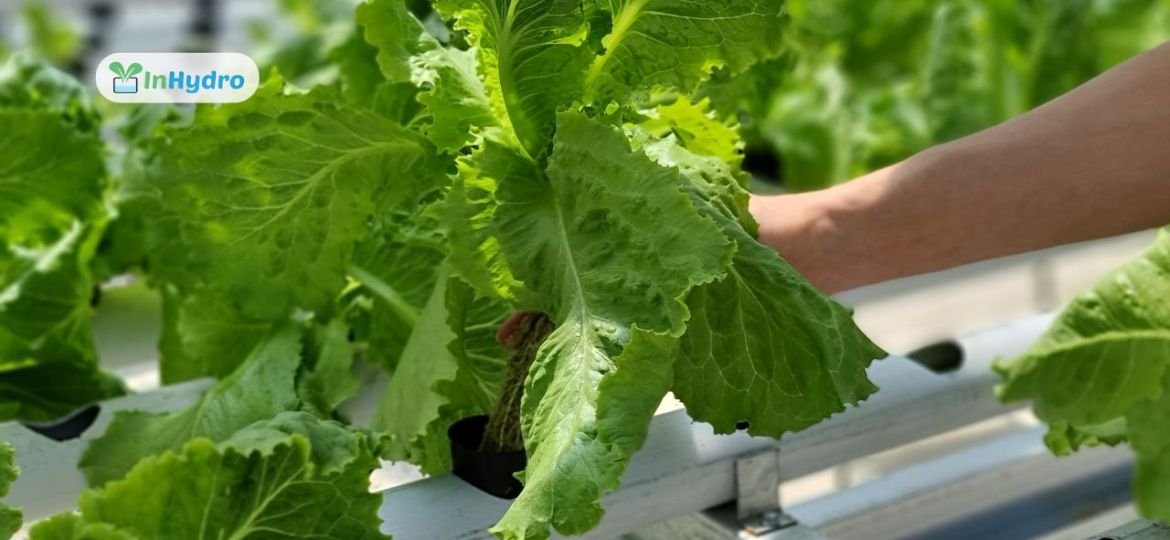
Zero-Waste Farming: How Hydroponics Eliminates Soil and Pesticide Pollution
In an era of growing environmental concerns, sustainable farming practices are no longer optional but a necessity for future food security. Hydroponics, a revolutionary soilless farming method, is leading the charge toward zero-waste farming by addressing major environmental issues like soil pollution, pesticide use, and excessive resource consumption. In this article, we will explore how hydroponic farming is helping to eliminate soil and pesticide pollution, all while contributing to a sustainable and eco-friendly future for agriculture.
The Environmental Impact of Traditional Farming
Conventional farming, while essential for global food production, comes with its own set of environmental challenges:
- Soil Pollution: The widespread use of chemical fertilizers and pesticides has led to soil degradation and contamination, making the land less fertile over time.
- Pesticide Runoff: Chemical runoff from fields can seep into water bodies, harming aquatic ecosystems and contaminating drinking water.
- High Resource Consumption: Conventional agriculture requires vast amounts of water, land, and energy, often at the expense of natural resources.
- Greenhouse Gas Emissions: Intensive farming practices contribute significantly to global greenhouse gas emissions, adding to the climate crisis.
These challenges highlight the urgent need for innovative solutions, and hydroponics stands out as a sustainable alternative.
How Hydroponics Reduces Soil Pollution
Hydroponics is a soil-free farming method that involves growing plants in nutrient-rich water solutions. This eliminates the need for soil altogether, thereby removing the risks associated with soil pollution.
1. No Chemical Fertilizers or Soil Additives
- Traditional farming often relies on chemical fertilizers and soil treatments that can lead to soil contamination over time. In hydroponics, nutrients are delivered directly to the plants through a carefully controlled water solution, eliminating the need for soil additives.
- The controlled environment ensures that plants receive just the right amount of nutrients without excessive runoff, reducing the risk of soil contamination.
2. Preventing Erosion and Land Degradation
- Soil erosion is a significant issue in conventional farming, where tilling, heavy machinery, and monocropping can deplete the soil. Hydroponics farming, on the other hand, requires no soil tilling or land manipulation, helping preserve land integrity and preventing erosion.
- Since hydroponics systems can be set up in urban areas or greenhouses, they can conserve agricultural land, reducing the pressure on ecosystems.
Eliminating Pesticide Pollution with Hydroponics
Pesticides are commonly used in traditional farming to control pests, but their overuse has led to a host of environmental problems, from polluting water supplies to harming beneficial insects and wildlife. Hydroponics, by design, is a closed-loop system that significantly reduces or eliminates the need for pesticides.
1. Controlled Environment
- Hydroponics is often practiced in controlled environments like greenhouses or indoor setups, where pests are easier to manage.
- Since plants are grown without soil, the risk of soil-borne pests is dramatically reduced. Additionally, the closed environment minimizes exposure to outside contaminants, reducing the likelihood of pest infestations.
2. Pesticide-Free Produce
- One of the standout features of hydroponics is that it allows for pesticide-free farming. By growing plants in a contained system, farmers can eliminate the need for chemical treatments while ensuring healthier, safer produce for consumers.
- As a result, hydroponically grown crops are free from harmful pesticide residues, which is a major benefit for both the environment and human health.
Hydroponics: A Key to Zero-Waste Farming
Hydroponic farming doesn’t just eliminate soil and pesticide pollution—it also supports zero-waste farming practices, where resources are used efficiently, and waste is minimized.
1. Closed-Loop Water Systems
- Hydroponic systems are designed to recycle water continuously. Unlike traditional farming, where irrigation systems waste large amounts of water, hydroponic systems only use a fraction of the water required.
- This water conservation reduces the strain on natural water resources and ensures that plants receive the exact amount of moisture they need.
2. Waste Reduction
- Hydroponics systems are highly efficient, and any organic waste generated during the farming process can be repurposed. For example, plant residues can be composted or converted into energy, reducing landfill waste.
- Additionally, by eliminating the need for soil and chemical fertilizers, hydroponics reduces the waste associated with mining for soil amendments and producing synthetic fertilizers.
The Benefits of Zero-Waste Hydroponics
Benefit | Traditional Farming | Hydroponic Farming |
Soil Pollution | High | Eliminated (no soil used) |
Pesticide Use | High | Minimal or none |
Water Consumption | High (inefficient irrigation) | Low (closed-loop system) |
Waste Production | High | Low (resource optimization) |
Greenhouse Gas Emissions | High | Low (energy-efficient systems) |
Adopting Hydroponics for a Sustainable Future
Hydroponics presents a major opportunity to shift toward a more sustainable agricultural model. By eliminating the need for soil, reducing pesticide use, and minimizing waste, hydroponics supports the global transition to zero-waste farming.
With environmental concerns growing, adopting sustainable farming practices is more important than ever. Hydroponics provides a solution that addresses multiple challenges of traditional agriculture, offering a cleaner, more efficient, and eco-friendly alternative for food production.
As we move toward a greener future, hydroponics stands as a cornerstone of sustainable agriculture, providing the tools necessary to combat soil pollution, reduce pesticide usage, and create a more environmentally responsible food system. With innovation from companies like InHydro, the future of farming can be cleaner, healthier, and more sustainable than ever before.

